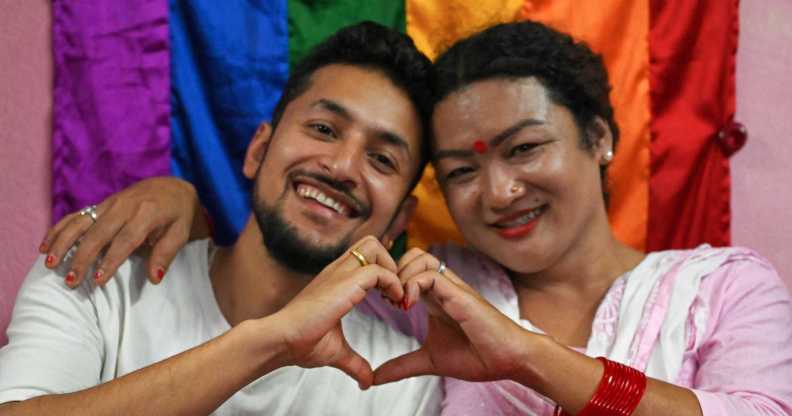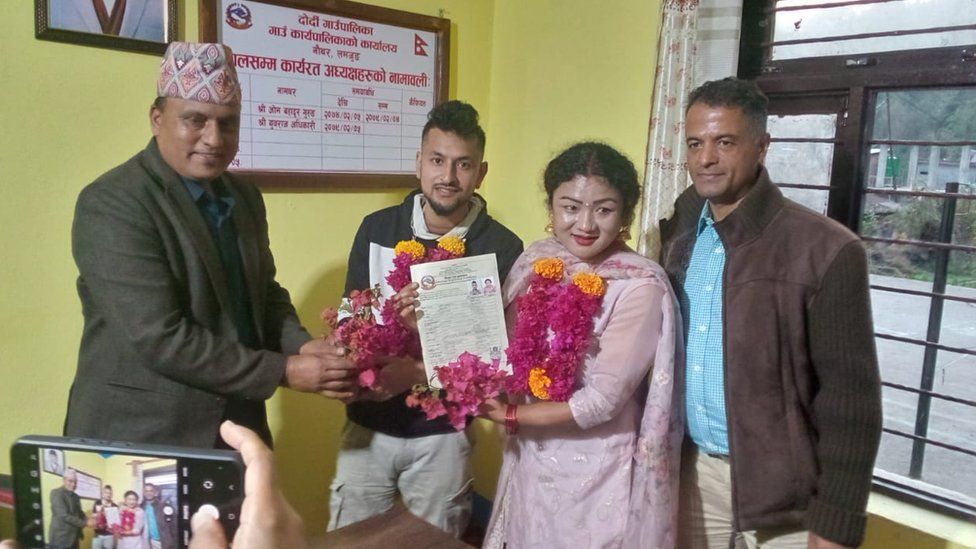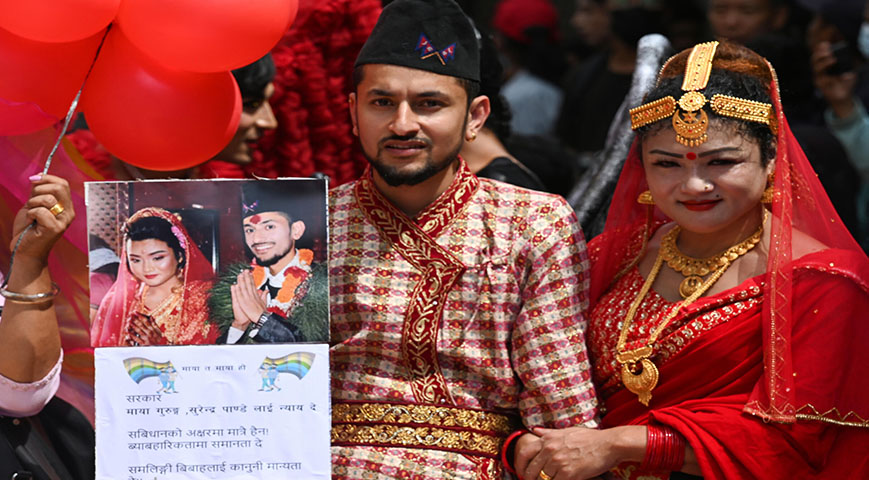On Wednesday, local authorities in Nepal registered the nation's first same-sex marriage, officials and activists said, five months after the Supreme Court issued an interim decision allowing such marriages in the mostly traditional country.
According to an official, the marriage of Ram Bahadur (Maya) Gurung, 36, who was born male but identifies as female, and Surendra Pandey, 26, who was born and identifies as male, was formally recorded at the Dordi rural municipality office in the Lumjung district of west Nepal.

“We are both very happy. Like us, all others in our community are happy too,” Pandey said in a phone interview.
The couple has been together for nine years and married according to Hindu traditions in Kathmandu in 2016.
Did you read this?
"We issued the couple a marriage registration certificate in accordance with the Supreme Court order and instructions from relevant government authorities," said Hem Raj Kafle, chief administrative officer of the Dordi rural municipality.
The country's Supreme Court granted an interim decision in June enabling same-sex couples to register their marriages, awaiting the outcome of the case.
.png)
Sunil Babu Pant, the founder of Nepal's foremost homosexual rights organization, the Blue Diamond Society, called it a win for sexual and gender minorities who have long sought equal rights, including recognition of their weddings.
"It's historic," Pant, a former politician, said, stressing that it was the first of its kind in South Asia.
"It will open the door for them to jointly open bank accounts, own and transfer property like just any other couples."

Taiwan is the only other country in Asia to legalize same-sex marriage, but societies are still overwhelmingly conservative.
Hindu-majority Nepal has been more progressive since the end of a decade-long Maoist insurgency in 2006.
Two years later, political parties voted to dismantle the 239-year-old Hindu monarchy, which was a fundamental demand of the Maoists, the main commander of which is now prime minister and leading a coalition government with the centrist Nepali Congress party.









